Ditapis dengan
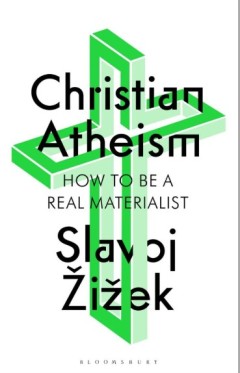
Christian Atheism : How to be A Real Materialist
Slavoj Žižek has long been a commentator on, and critic of, Christian theology. His preoccupation with Badiou's concept of 'the event' alongside the Pauline thought of the New Testament has led to a decidedly theological turn in his thinking. Drawing on traditions and subjects as broad as Buddhist thought, dialectical materialism, political subjectivity, quantum physics, AI and chatbots, this…
- Edisi
- First Published
- ISBN/ISSN
- 978-1-3504-0934-6
- Deskripsi Fisik
- viii + 300 pgs.;
- Judul Seri
- -
- No. Panggil
- 211.8 ZIZ c
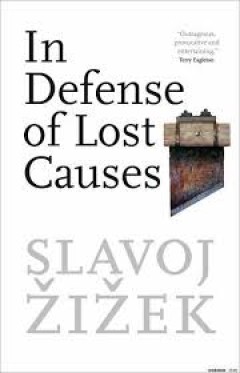
In Defense Of Lost Causes
Is global emancipation a lost cause? Are universal values outdated relics of an earlier age? In fear of the horrors of totalitarianism should we submit ourselves to a miserable third way of economic liberalism and government-as-administration? In this major new work, philosophical sharpshooter Slavoj Žižek takes on the reigning ideology with a plea that we should re-appropriate several &ls…
- Edisi
- First Published
- ISBN/ISSN
- 978-1-84467-108-3
- Deskripsi Fisik
- 504 hlm.; 27 cm.
- Judul Seri
- -
- No. Panggil
- 122 ZIZ d

Violence: Six Sideways Reflections
Using history, philosophy, books, movies, Lacanian psychiatry, and jokes, Slavoj Žižek examines the ways we perceive and misperceive violence. Drawing from his unique cultural vision, Žižek brings new light to the Paris riots of 2005; he questions the permissiveness of violence in philanthropy; in daring terms, he reflects on the powerful image and determination of contemporary terrorists. …
- Edisi
- First Published
- ISBN/ISSN
- 978-0-312-42718-4
- Deskripsi Fisik
- vi + 262 pgs.; 23,5 cm.
- Judul Seri
- -
- No. Panggil
- 303.6 ZIZ v
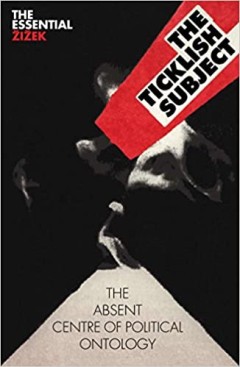
The Ticklish Subject: The Absent Centre Of Political Ontology
Slavoj Žižek, the maverick philosopher, author of over 30 books, acclaimed as the “Elvis of cultural theory”, and today’s most controversial public intellectual. His work traverses the fields of philosophy, psychoanalysis, theology, history and political theory, taking in film, popular culture, literature and jokes—all to provide acute analyses of the complexities of contemporary ideo…
- Edisi
- First Published
- ISBN/ISSN
- 1-85984-291-7
- Deskripsi Fisik
- 409 pgs.; 24 cm.
- Judul Seri
- -
- No. Panggil
- 111 ZIZ t
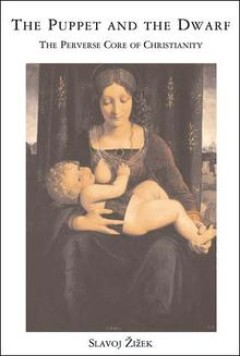
The Puppet and the Dwarf: The Perverse Core of Christianity
Slavoj Žižek has been called "an academic rock star" and "the wild man of theory"; his writing mixes astonishing erudition and references to pop culture in order to dissect current intellectual pieties. In The Puppet and the Dwarf he offers a close reading of today's religious constellation from the viewpoint of Lacanian psychoanalysis. He critically confronts both predominant versions of tod…
- Edisi
- -
- ISBN/ISSN
- 0262740257
- Deskripsi Fisik
- viii + 188 pg.; 26 cm.
- Judul Seri
- -
- No. Panggil
- 230 ZIZ p

God in Pain: Inversions of Apocalipse
A brilliant dissection and reconstruction of the three major faith-based systems of belief in the world today, from one of the world's most articulate intellectuals, Slavoj Zizek, in conversation with Croatian philosopher Boris Gunjevic. In six chapters that describe Christianity, Islam, and Judaism in fresh ways using the tools of Hegelian and Lacanian analysis, God in Pain: Inversions of Apoc…
- Edisi
- -
- ISBN/ISSN
- 9781609803698
- Deskripsi Fisik
- 285.: ils.; 24,5 cm.
- Judul Seri
- -
- No. Panggil
- 200.1 ZIZ g
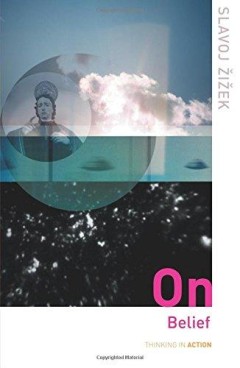
On Belief: Thinking in Action
What is the basis of belief in an era when globalization, multiculturalism and big business are the new religion? Slavoj Zizek, renowned philosopher and irrepressible cultural critic takes on all comers in this compelling and breathless new book. From 'cyberspace reason' to the paradox that is 'Western Buddhism', On Belief gets behind the contours of the way we normally think about belief, in …
- Edisi
- -
- ISBN/ISSN
- 0203167090
- Deskripsi Fisik
- 170 pg.; 26 cm.
- Judul Seri
- -
- No. Panggil
- 291.2 ZIZ o
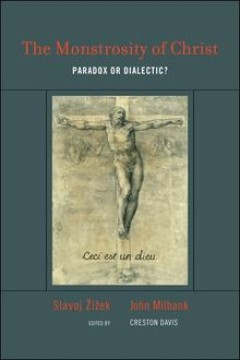
The Monstrosity of Christ: Paradox or Dialectic?
“What matters is not so much that Žižek is endorsing a demythologized, disenchanted Christianity without transcendence, as that he is offering in the end (despite what he sometimes claims) a heterodox version of Christian belief.”--John Milbank“To put it even more bluntly, my claim is that it is Milbank who is effectively guilty of heterodoxy, ultimately of a regression to paganism: in …
- Edisi
- -
- ISBN/ISSN
- 9780262012713
- Deskripsi Fisik
- 312 pg.; 27,5 cm.
- Judul Seri
- -
- No. Panggil
- 230 ZIZ m

The Parallax View
The Parallax View is Slavoj Žižek's most substantial theoretical work to appear in many years; Žižek himself describes it as his magnum opus. Parallax can be defined as the apparent displacement of an object, caused by a change in observational position. Žižek is interested in the "parallax gap" separating two points between which no synthesis or mediation is possible, linked by an "impos…
- Edisi
- -
- ISBN/ISSN
- 0262240513
- Deskripsi Fisik
- 429 pg.; 28 cm.
- Judul Seri
- -
- No. Panggil
- 199.4973 ZIZ p
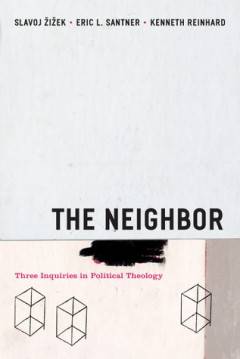
The Neighbor: Three Inquiries in Political Theology
In Civilization and Its Discontents, Freud made abundantly clear what he thought about the biblical injunction, first articulated in Leviticus 19:18 and then elaborated in Christian teachings, to love one's neighbor as oneself. "Let us adopt a naive attitude towards it," he proposed, "as though we were hearing it for the first time; we shall be unable then to suppress a feeling of surprise and …
- Edisi
- -
- ISBN/ISSN
- 0226707385
- Deskripsi Fisik
- 190 pg.; 26 cm.
- Judul Seri
- -
- No. Panggil
- 177.7 ZIZ n
 Karya Umum
Karya Umum  Filsafat
Filsafat  Agama
Agama  Ilmu-ilmu Sosial
Ilmu-ilmu Sosial  Bahasa
Bahasa  Ilmu-ilmu Murni
Ilmu-ilmu Murni  Ilmu-ilmu Terapan
Ilmu-ilmu Terapan  Kesenian, Hiburan, dan Olahraga
Kesenian, Hiburan, dan Olahraga  Kesusastraan
Kesusastraan  Geografi dan Sejarah
Geografi dan Sejarah